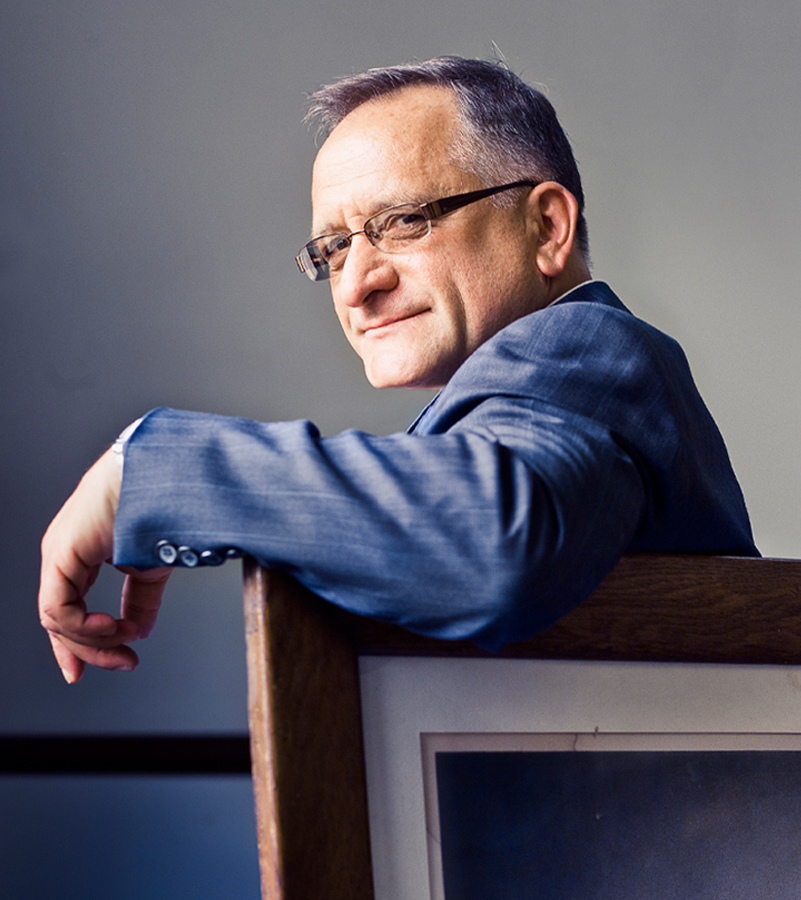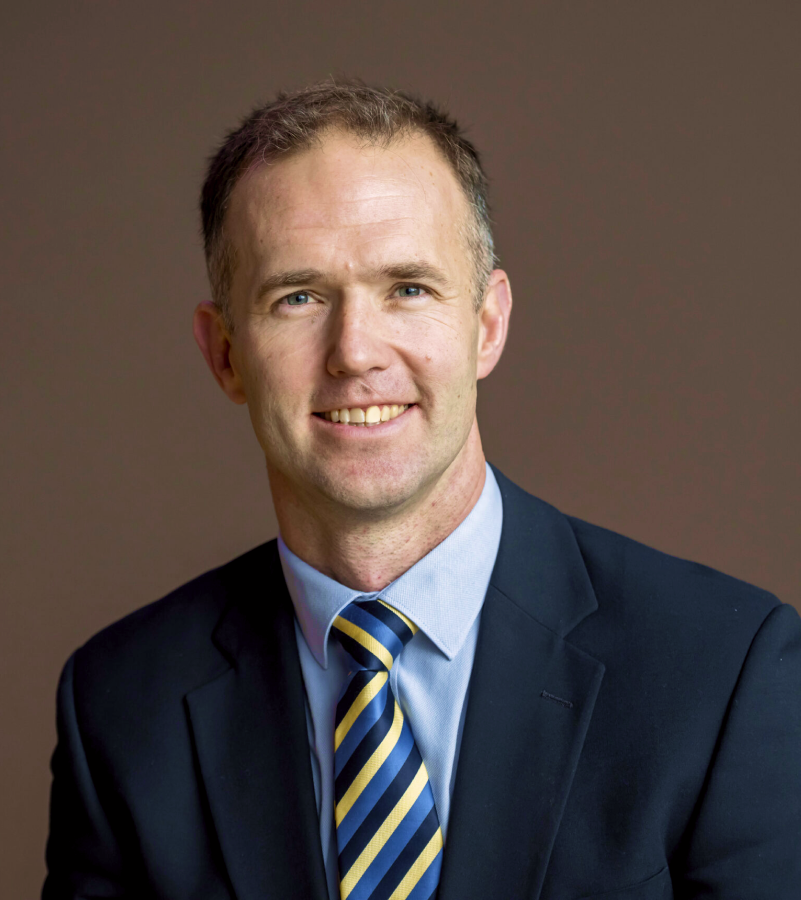"We are a school that really values the power of kindness, and we do all that we can to encourage the pupils to be kind to one another.”
First, would you like to give us a brief introduction to Lincoln University? We understand that it was established in 1919 in San Francisco and has always been a pillar with a strong international character. Would you perhaps tell us a little bit more about the university?
The university was established in 1919, and the founder’s first goal was to provide education to people returning from the First World War, specifically American soldiers. It was his idea, and he started something.
But you know, ideas do not all stay the same way as in the beginning. They do evolve. And so eventually, San Francisco is a very international place. It’s known. It’s a gateway to Asia from the United States. So, the university got an international feature very quickly after that. And it continued to be basically international through 2020 before Covid. So, before COVID-19 in something like 2017, we had students from 62 countries, and we had quite an international faculty.
I was born and educated in Russia, and I have two doctoral degrees from there. I came to the United States in 1989. I was a research professor at the UC Berkeley Department of Statistics, and after 10 years at UC Berkeley, something happened. My life was changing, and I got the opportunity to become an administrator, which I never did before. I moved to Lincoln.
I like it because Lincoln is a specific school. Lincoln is a school that concentrates on business. Because of my quantitative background, I call it quantitative business. Business has different approaches, such as psychology and communications. But a lot of business questions are still quantitative. You have to be able to measure.
This is a famous expression of Lord Kelvin, the famous British physicist. He said, “If you want to measure something, you have to define it first. It cannot be measured if it’s not defined, and it cannot be improved if it’s not measured.” The business is not just to do something. Business is to get results, sometimes positive, sometimes negative, and you have to measure it. And the measures are different. It’s not only money. So this is what we do. We try to teach quantitative business.
We also have another degree, which is called Bachelor of Science in Diagnostic Imaging. For business degrees, we have the full spectra, starting from bachelor’s degrees through master’s and doctoral degrees, a good master of science and MBA, and so on.
We also have a degree in diagnostic imaging, which is a really unique degree. It basically requires a sophisticated level of understanding of ultrasound and how to use it. It’s a smaller part. But again, it’s mainly business school, and as a mathematician and statistician, I found it interesting how we can apply it to business insights.
I could compare it. I’ve been to many places in the world, starting from Russia and Europe. People teach economics, not business, which is a huge difference. So we teach quantitative business instead of theoretical economics. Business is a practical science. The differences in approach, like, I don’t know who understands it or not, the difference between probability, theory and statistics.
Probability theory is based on the model of how to calculate the chances of something happening. Statistics is based on observation. To explain what was the model that generated these outcomes, this is how we approach the business, and I believe we’re successful because being a very small university, our best times we had about 800 students, we were number three in Northern California after UC Berkeley and Stanford, the number of MBA students, which is I think a great achievement. The majority of these MBA students are full-time, not part-time.
However, Covid changed the world in many ways, and international students could not come to this country. The immigration rules were changed, and many, many different things changed. So we opened our university more for local students, bringing one degree of students and basically based it on athletic capabilities. We started different athletic activities. Now, we have a football team which we never had before. We have two soccer teams, you know, boys and girls. We have the basketball teams, boys and girls.
So it’s all been an attraction for local students, and I’m kind of proud of local students. They’re not as good as international students in some sense because international students need to be really good to come to the US. You cannot just stop them. But local students have fun.
So this is how Lincoln changed, and this is what we are now. We have about 400 students at this moment. We still have not recovered after COVID-19, but we’re going up and getting better. And I can tell you that the real serious problem is immigration policies because we have about 1,200 international applications per semester. It would be approximately 3,000 applications per year for two semesters and summer sessions, and we have 150 students. Others don’t get visas.
Of course, we understand that there are some countries like from Europe, it is the easy to get a visa. And we have different European countries, but in Europe, there are no young people who wants to study. The majority of students today come from India. They’re good, and they speak English very well. In Nigeria, they speak English very well, but they cannot get visas.
I understand the difficulties, and hopefully, things will change in the future, especially when it comes to the education sector. Nevertheless, you’re still a very successful university despite Covid. What do you think have been the keys to the success of Lincoln, especially after the pandemic?
You see, Lincoln was always a small university with small classes and traditional face-to-face education, which attracted me. I had people who were moving to us from UC Berkeley High School or business, which is well known, and these people said, “We want lectures. We don’t want only discussions by sitting with other students around the table.” So we have lectures. We have projects. We have a lot of presentations where students defend their thesis and project.
It was a traditional school. So we never had online education. I was against online education, and Covid forced us to teach online. And now we teach online everywhere. And I think we’re happy with this. See, online teaching can be synchronic and asynchronic. Asynchronic is when it’s pre-recorded. Basically, students can take it at any time.
At this moment, we only do it in a synchronic way, where basically, you can see me, and you can ask me questions but through the internet. It’s still not the same as real communication with an instructor, but we teach now online, and we teach everywhere in the world. Basically, we have students now in different places.
We try to teach cohort groups when we can arrange a specific time. The problem is the time difference. We also offer some, not many, courses online, which can be taken by people in India, the Middle East, and Africa. So, this is the change. If you would ask me, in 2017, I had many problems. I would never do online because Lincoln was not online. And now Lincoln is online.
As you mentioned, you focus on business administration programs. You have a bachelor’s and the MBA all the way to the doctorate. What would you say is the key differentiation when it comes to your business programs? What makes Lincoln unique
Compared with European universities or compared with American universities?
American universities.
In the United States, MBA programs are kind of exclusive. It’s basically designed for people who want to grow being managers already. And a lot of MBA programs are part-time, like UC Berkeley MBA programs are part-time. A lot of them are evening programs. Stanford is teaching full-time, daytime. But Lincoln is affordable. Like Stanford MBA program is about, I don’t remember exactly, $120,000. And Lincon MBA program is $20,000.
So, we are affordable. Again, our goal for the MBA program is not to teach professors or Nobel Prize winners. Our primary goal is to teach business managers, people who can arrange businesses, start them and manage them. I always tell my students that my success is not when they get the job. My success is when you start a business and create jobs for others.
This is what it means to be a businessman. So, at this moment, with this small university, we have about 1,500 LinkedIn connections just in Silicon Valley. This is our success.
People are managers with top-level companies, and people start their own companies. But for me, if somebody starts a restaurant and hires four people, it’s a success. Somebody is going to get the job and getting a lot of money as an employee is not because an employee can be kicked out at any moment.
I didn’t understand it before I started to administer basically. But now I clearly understand. So our goal is to educate business managers who can start businesses and basically give something to other people in terms of work.
Besides affordability, what would you think is the competitive strength in comparison to other big players like Stanford and Berkeley?
Oakland is the transportation and industrial hub of the San Francisco Bay Area. And we are right in downtown Oakland, the center of Oakland. So people can be anywhere in the Bay Area, which has 8 million population and they can come to Oakland by public transportation. It can be trains, buses, subways, or everything. So Oakland’s location downtown is we’re right by the City Hall in the center, maybe 3 minute walk from our subway system and a lot of buses. This is the number one thing.
Of course, the cost is good, and we try to schedule this for people who can work. Basically, all our master-level students are working. So each class is 3 hours continuously. You see, the full-time master-level students are supposed to take 9 hours per week. So if you go to a big university, they don’t care about schedules so much. We create individual schedules and sense that students can come just two days a week. They can also take one course online. In that situation, we teach 3 hours once a week.
So this will give an advantage to people who want to work and who are not living right there because we have a lot of students coming from Silicon Valley, which is maybe one hour away by public transportation and some other places. I think the individual approach with a small school is attracting students.
Right. So we can highlight those two things: affordability and convenience in terms of location. It is flexible enough to accommodate students who are working while studying. This leads me to my next question, which will be about the campus and the housing. Obviously, potential students are interested in knowing a little bit more about the campus. So, could you please tell us a little bit about it?
Our actual campus is just two buildings. One building completely, and another building we lease. So we have library in the second main building where I am now. And over the street, we have another one, so mainly an auditorium. But we have another building where we have our diagnostic imaging lab, one auditorium and some offices for each department. So these are just two buildings in the center of Oakland.
The housing is again, we lease these places for our students. It’s about 10 minutes by bus in the town. It’s called Alameda County. It’s a very nice place on the island of Alameda. It is very safe and has very nice housing. We rent two-bedroom apartments, and four students usually live in that apartment. So basically, two people in one bedroom. I think our conditions of living got better than UC Berkeley housing. I worked there, my two daughters graduated with US Berkley. So I kind of know.
That’s actually very interesting.
Yeah. So we meet students. We furnish these apartments. It’s just a trivial thing, but they like it. It’s only the beginning because the majority of our students live where they work. So if they move north from Oakland or the new South or East, they usually leave the day after that. But in the beginning, they start with the university.
Another component I would like to discuss with you is the faculty members. Obviously, they are of an international background. Will you tell us a little bit more about what students could expect when interacting with the faculty? What are the backgrounds and qualifications?
You know, the faculty member, we’ll have to open the catalog and basically go through them. But again, it’s not easy to find faculty members for such staff of the business school, and it’s not to reach, you know, we cannot and tracked by salaries. So my strategy to hire faculty members was to get senior faculty members from another school where they could retire, kind of from state universities from some other places because Lincoln’s teaching load is much lower than in a state university.
So we have senior people, and the absolute majority of our faculty members have doctoral degrees. Of course, some people in accounting make up a CPA license. But you know the level of faculty members is very high. My Russian background resulted in the fact that I have several people who were educated in Russia before in the Soviet Union. Not Russia. I never lived in Russia. I live only Soviet Union. I love the Soviet Union; I mean, I lived in the Russian Federation, which was part of the Soviet Union. But I have never been a Russian citizen or something like that. I’m an American citizen.
So we have people trained in Russia, specifically in quantitative and medical fields
because in business education, definitely American instructors are better. They have a better feeling about this. We have Chinese. We have different people. It’s an international faculty. We have a Greek instructor. We have a Hispanic instructor.
They are all different, but the goal is basically seniority. You see, the university was based on international students, and the majority of them come from Asia, and Asian students want to see senior people. It’s kind of a cultural take. We have some younger people, but again, majority of our instructors are senior people. Like I’m 72 years old.
You don’t look like 72 years old.
I try. I still play soccer. I play in the senior league.
As my last question, I would like to ask what the key message that you would like to send with this feature will be.
I found that it cannot be just a key message for everybody. It should be a key message for different groups of students. So my key message for American students would be to get education. We would solve a lot of problems if people get education not because they are forced to do but because they believe in something.
For international students, my message is that there is no business education like in the United States. It is a country where everybody sells something, and the ability to sell is the business education because business starts with investment then production and sale. If there’s no sale, nothing happens.
In economics, when you go to the London School of Economics, which is a great school, they still don’t know how to sell. You need to know how to sell. As you know, I am from a family of professors and researchers. I’m a third-generation professor. My son has a PhD, fourth generation, and my grandson also, but nobody knew in my family what to sell and how to sell. My father was a professor at the University of Washington. You never couldn’t understand who is paying you. Like when I was in a university, I was paying everybody, but who was paying you?
So, only in the United States do I really see business education as a business. And this is the science of business, how to manage, how to market, how to calculate things. It is science. It’s not just as most people think of business as buying low and selling high. No, it’s not. It’s a lot more complex. This is my message to international students.
And one last question: What is your vision for Lincoln in the next 3 to 5 years?
I hope we are back to something like 800, 900 students. We select students, we review them and we don’t accept everybody. But again, when you’re full, your selection is much better. So I would like to see better students, and I hope that the immigration system will improve and the lines for the consulate will be less. As you can imagine, in Spain, it took almost a year just to get the interview. So I hope that our lives become freer and that we can select good students, and these good students will benefit from that everywhere. It’s just a great thing.
I teach, and my goal when I come to my class is to give one level to smart students. When I see weak students, it’s a different level. Because clusters are small, you always teach the worst students because if they don’t understand, there’s nothing to do. Everybody should understand.
The result is what they learn, not what you deliver. What students learn is your result. My hope will be back to 800 students, and after 800, 900 good students, we cannot teach. Lincoln is not for more than 1,000 students, period. It would not be taken.
Last thing. Every student can come to me. I have office hours, and people can come to me for advice; I don’t believe there is any other university, at least in the United States, where the president is available to every student.



















